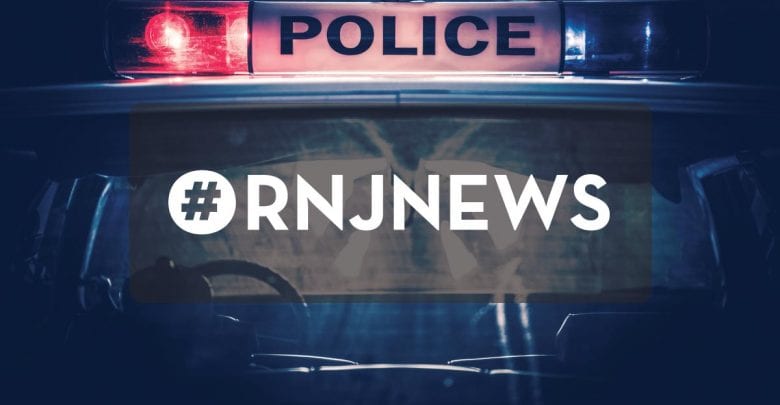
New Jersey Police Licensure Act takes effect
NEW JERSEY — A new state law went into effect this month requiring New Jersey’s approximately 40,500 police officers to hold valid, active licenses issued by the Police Training Commission (PTC) in order to serve as law enforcement officers.
Signed by Governor Phil Murphy in July 2022, the Police Licensure Act (P.L. 2022, c. 65) became effective on January 1, 2024. The law is designed to ensure that police license holders are in good standing with their employers, meet certain uniform professional standards, and receive ongoing training in best practices in the field, in order to become and continue to serve as officers.
The law makes policing a licensed profession in New Jersey, with the aims of improving officer development and safety and bolstering trust between law enforcement officers and the public. With the launch of the police licensing program at the beginning of year, New Jersey joined over 40 states across the country that require police to be licensed.
“When I signed the police licensing bill into law in 2022, I did so recognizing the importance of maintaining a law enforcement force consisting of highly trained and skilled officers who fulfill their duties with honesty and integrity,” said Governor Murphy. “The police licensing program assures us that those who are hired to protect and serve the communities of our state are held to the high standards we expect of our law enforcement officers.”
“Police licensure is a major milestone for excellence in law enforcement and for improved public safety in New Jersey,” said Attorney General Matthew J. Platkin. “This law will ensure that our police personnel have the latest knowledge to be safe and effective while playing their critical roles in our society, and while reassuring community members that their safety and well-being is in the hands of individuals who are truly New Jersey’s finest.”
“The Police Training Commission is dedicated to upholding the highest standards of professionalism and promoting continuing education for our police officers, and the enactment of this law will go a long way toward achieving those aims,” said Thomas J. Eicher, Executive Director of the Office of Public Integrity and Accountability. “The ongoing professional growth and accountability that will be attained through police licensure will enhance the capabilities and credibility of New Jersey’s outstanding law enforcement community.”
With the Police Licensure Act, existing officers, who were already on the job and beyond the probationary period of their careers as of the beginning of this year, have been issued initial licenses valid for one, two, or three years. Officers were randomly assigned to one of those three groups that will renew at different future dates, to avoid the need to renew every officer in the state at the same time.
Going forward, after the first renewal, all licenses will be effective for three years. Officers must reapply 90 days before their licenses expire and provide supporting documentation. Police chiefs will be required to certify to the PTC that each renewing officer they employ is of good moral character, meets the standards to be a law enforcement officer, has completed required training, and has not engaged in any conduct or been the subject of any action that might lead the PTC to deny the renewal request. If a license renewal application is still pending after a license expires, the law allows officers to continue working until the commission reaches a decision.
The PTC, which facilitates the education and training of officers in an effort to enhance professionalism, transparency, and accountability, voted unanimously in June 2020 to create a statewide police licensing program.
Any individual seeking to become a law enforcement officer in New Jersey will need to meet certain professional standards and maintain those standards in order to maintain their license. Those who fall short of the standards could face suspension or revocation of their license, which could temporarily or permanently prevent them from working as officers. Suspension and revocation make it tougher for officers with a track record of disciplinary problems to move from police department to police department and evade accountability.
The PTC on August 10, 2023, formally adopted the process by which the commission would grant, renew, and if needed take action against licenses.
Chief law enforcement officers must notify the PTC of any separation from employment with their agencies or any change to an officer’s employment status, any pending criminal charge or a conviction of any crime, disorderly persons or driving while intoxicated offense. The PTC also must be advised about agencies’ imposition of major discipline, and of sustained findings that an officer used excessive force, was unfit for duty, or engaged in fraudulent conduct.
Most of the employment-related actions for which notification to the commission is required are those for which public safety is at risk or those that result from a sustained finding.
The new rules also stipulate that law enforcement agencies must terminate, suspend, or refuse employment to any individual whose license has been denied, revoked, or suspended.
Appeals to adverse license actions will be heard by a hearing officer, who will make recommendations to the PTC’s Licensing Committee. That committee will then make recommendations to the full PTC regarding any adverse action.
The police licensing program is among a series of recently launched policing innovations with the support of Governor Murphy and under the leadership of Attorney General Platkin, designed to further strengthen the professionalism and effectiveness of law enforcement in New Jersey:
- A November 2022 directive requiring that law enforcement agencies annually report to the Attorney General and publish on their websites more types of conduct prompting disciplinary action, including charges of discrimination or bias, excessive force, filing a false report or involvement in domestic violence.
- A 2022 policy geared toward improving the efficiency of agency responses to requests for internal affairs records, requiring the disclosure of a summary of the allegations, factual findings, and final discipline imposed in certain cases, upon request by a member of the public or the press.
- The expansion to all 21 New Jersey counties, in December 2023, of Alternative Responses to Reduce Instances of Violence and Escalation (ARRIVE), which addresses behavioral health crises using alternative emergency responses involving mental health professionals in addition to, or in lieu of, police officers.
- The issuance in August 2022 of guidelines to make policing a more accessible career path for women and improve the diversity of New Jersey’s law enforcement ranks, by safeguarding the workplace rights of pregnant and breastfeeding officers at law enforcement agencies.





